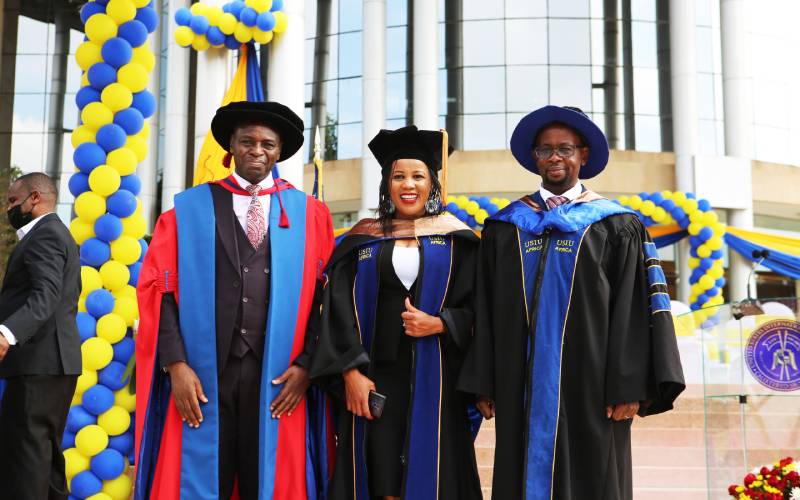×
The Standard e-Paper
Join Thousands Daily

A total of 1,517 students graduated today during USIU-Africa’s 43rd Commencement Ceremony, marking the first physical graduation held at the University since the beginning of the pandemic. The graduands included 1,135 Undergraduate, 351 Masters and 14 Doctoral students, with the first cohorts of students from the Film Production and Directing and Marriage and Family Therapy programs also graduating.